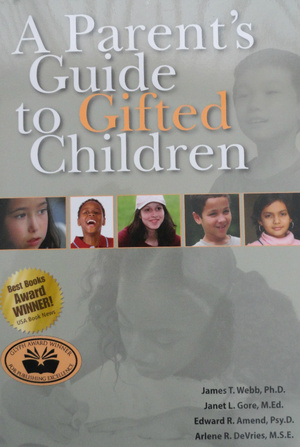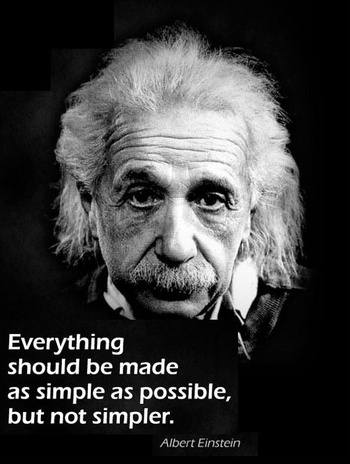A parents guide to gifted children - Webb/Gore/Amend/De Vries
A Parent's Guide to Gifted Children is still one of the best books available on parenting gifted children. Webb is one of the best professionals in this field. Chapters in the Book: Defining Giftedness Characteristics of Gifted Children Communication: The Key to Relationships Motivation, Enthusiasm, and Underachievement Establishing Discipline and Teaching Self-Management Intensity, Perfectionism, and Stress Idealism, Unhappiness, and Depression Acquaintances, Friends, and Peers Family Relationships: Siblings and Only Children Values, Traditions, and Uniqueness Complexities of Successful Parenting Children Who are Twice-Exceptional How Schools Identify Gifted Children Finding a Good Education Fit Finding Professional Help In addition to these chapters, the introduction discusses the use of the term "gifted" as well as some myths about gifted children. At some point, most gifted children will attend school and the chapters on school and education will help parents gain a basic understanding of both IQ and achievement tests and how schools use these tests to identify gifted children. One chapter describes the various programming options, such as differentiation, that schools use to accommodate gifted kids. This information is helpful for parents who need to advocate for their children to ensure that the children are getting appropriate educational services. Parents who are just starting out on their journey of parenting a gifted child will find this book reassuring and informative. However, even parents who are familiar with giftedness and its surrounding issues will find this book useful. It makes a wonderful reference book that parents can get out when they need it. Parents who begin to wonder, for example, whether their child is ADHD can refer back to the chapter on twice-exceptional children. When parents first learn that their child is gifted, they may feel overwhelmed and unsure. The tone and language the authors use is both comforting and reassuring. Although the authors often refer to research, their discussions are clear and don't require any previous knowledge of giftedness, yet those who do have some knowledge of giftedness will still find plenty of useful information.
Extra informatie
Guide Review - Book Review: A Parent's Guide to Gifted Children This book covers just about everything a parent of a gifted child needs to know about raising gifted children. Those who are new to the world of gifted children will find the first chapters assuring and informative. The first chapter briefly explores the concept of giftedness, including the role of genetics and environment, multiple intelligences, and measurement of intelligence. The second chapter starts out with the "check list" of gifted traits but then goes on to discuss the most typical characteristics in detail, providing examples to help readers understand each particular trait. The examples are particularly helpful for parents who aren't quite sure if their child is really gifted or "just bright." Three of the other chapters of the book -- one on communication, one on discipline, and one on the complexities of successful parenting -- are about parenting a gifted child. Each of these chapters provides specific strategies parents can use. Some of the strategies, such as setting limits, can also be found in the typical parenting book, but in A Parent's Guide to Gifted Children, the impact of those strategies on gifted children are usually provided. For example, the authors advise parents to avoid sarcasm since the intense sensitivity of many gifted children can cause them to be deeply hurt by it. Most of the remaining chapters of the book cover issues that are unique to gifted children. Some of them are about the child him or herself, some are about the child as a member of the family, and some are about the child in school. Although these chapters are not specifically about parenting, each one starts out by discussing the concept or issue and ends with specific strategies for dealing with the issues. For example, the chapter "Intensity, Perfectionism, and Stress" begins by explaining the intensity of gifted children, their idealism, and their perfectionism (including a discussion of whether perfectionism is learned or inborn), and then moves on to discussions of specific strategies such as using books to develop perspective and encouraging children to keep a journal.


